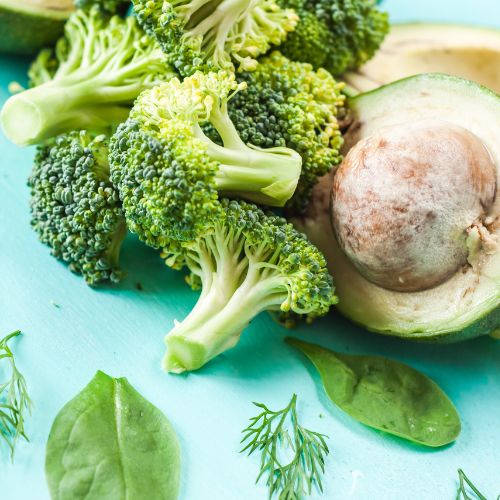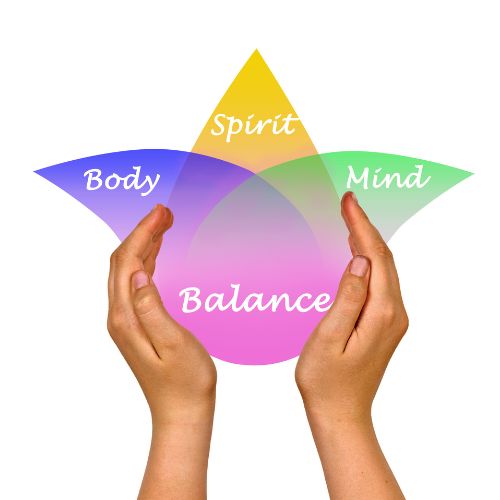Ayurveda is an ancient holistic healing approach that addresses various severe conditions. Many diseases are often treated successfully through Ayurveda and Panchakarma.
Non-alcoholic fatty liver disease (NAFLD) can be treated with allopathy medicines, but in some cases, patients may experience difficulties or find that allopathic fatty liver medicine don’t suit them well.
However, an individual dealing with NAFLD has the option to consider Ayurveda for their fatty liver treatment.
In Ayurvedic Panchakarma treatment, we administer a series of therapeutic procedures aimed at eliminating toxins from your body, restoring balance to the doshas, and enhancing overall health.
Here are some steps which are done in panchakarma therapy to cure non-alcoholic fatty liver disease:


Deep detoxification is achieved through two powerful Panchakarma therapies known as “Vamana” and “Virechana.”
These therapies focus on eliminating toxins and impurities from the body, providing a detoxification effect on the liver.
By undergoing these therapeutic procedures, you can effectively cleanse accumulated waste material from the liver and digestive system.

According to Ayurveda, there are three main doshas: Vata, Pitta, and Kapha. Imbalances in these doshas can contribute to the development of various diseases, including non-alcoholic fatty liver disease (NAFLD).
Panchakarma therapies play a crucial role in restoring the balance of these doshas. In the case of NAFLD, balancing the Pitta dosha is particularly important as it plays a significant role in liver health.
By achieving this balance, we can effectively treat and cure non-alcoholic fatty liver disease.

“Basti,”(medicated enema) a Panchakarma therapy, specifically designed to support liver function. Various medicated oils, herbal remedies, and ingredients are utilized in Basti to treat non-alcoholic fatty liver disease.
This therapy cleanses and nourishes the liver, contributing to improved liver health.

Panchakarma encompasses various therapies, including Abhyanga, Swedana, and Shirodhara. These therapeutic treatments contribute to improved digestion, boosted metabolism, and enhanced overall functioning of the digestive system, including the liver.
Abhyanga involves an oil massage, Swedana is an herbal steam therapy, and Shirodhara entails a continuous pouring of herbal oil on the forehead to cleanse doshas and provide relief.
Non-alcoholic fatty liver disease (NAFLD) is common nowadays. Non-alcoholic fatty liver disease (NAFLD) is a condition where fat accumulates in liver cells, unrelated to alcohol consumption but often associated with obesity.
Other factors associated with non-alcoholic fatty liver disease (NAFLD) include insulin resistance, type 2 diabetes, high cholesterol, and metabolic syndrome.
This primarily happens due to a poor diet. Non-alcoholic fatty liver disease (NAFLD) can result in significant damage to liver cells, leading to liver dysfunction or even more severe health conditions.








Obesity is a cause for concern, as it’s not just about having extra weight; it’s a potential hub for diseases.
Obesity indicates an imbalance in the ratio of body fat to muscle. With obesity, the risk of developing diseases like non-alcoholic fatty liver disease (NAFLD) and others increases.

Type 2 diabetes can impact insulin levels in the body, contributing to the accumulation of fat in the liver. This excessive buildup of fat tissues is a factor in the development of non-alcoholic fatty liver disease (NAFLD).

Specific genetic factors can increase the likelihood of fat accumulation in the liver, even without excessive alcohol consumption. Genetics can also play a role in the inflammation and fibrosis (scarring) linked to NAFLD.
The advancement of NAFLD to more severe stages like non-alcoholic steatohepatitis (NASH) and cirrhosis can be influenced by genetic variations.
While genetic factors contribute, lifestyle choices and environmental factors also significantly impact the development and progression of NAFLD.
NAFLD is a condition where fat accumulates in the liver cells, unrelated to alcohol consumption but often associated with obesity, insulin resistance, type 2 diabetes, high cholesterol, and metabolic syndrome. Common symptoms include severe tiredness, yellowing of the skin or eyes, dark patches on the skin, weight loss, spiderlike blood vessels on the skin, pain or discomfort, and long-lasting itching. While allopathic medicine can treat NAFLD, some patients might experience difficulties or find that these treatments don’t suit them.
Ayurveda offers a holistic approach to treating NAFLD through therapies like Panchakarma. Panchakarma involves a series of therapeutic procedures aimed at eliminating toxins from the body, restoring balance to the doshas (Vata, Pitta, and Kapha), and enhancing overall health. Specifically, therapies like Vamana (emesis) and Virechana (purgation) are used for deep detoxification, while Basti (medicated enema) supports liver function.
Panchakarma is an Ayurvedic detoxification treatment that involves five major therapeutic procedures. For NAFLD, it includes:
Several lifestyle factors contribute to NAFLD, including:
Ayurvedic treatment for NAFLD offers several benefits:
 Manik DI have had an amazing experience with Vedic Sutra. Every detail of the process and it's outcome(s) was explained to me clearly in advance by the Dr. The massage therapies were excellent. My body feels rejuvenated like a new and clean one, as well as got a weight loss just what I was told. Although I did not have much scope of weight loss. They have been sensitive to my comfort as well as different bodies could react differently to the therapy. Thank you Team Vedic Sutra 🙏 Gratitude Manik Dhodi
Manik DI have had an amazing experience with Vedic Sutra. Every detail of the process and it's outcome(s) was explained to me clearly in advance by the Dr. The massage therapies were excellent. My body feels rejuvenated like a new and clean one, as well as got a weight loss just what I was told. Although I did not have much scope of weight loss. They have been sensitive to my comfort as well as different bodies could react differently to the therapy. Thank you Team Vedic Sutra 🙏 Gratitude Manik Dhodi Preeti SharmaMy 3 year old was suffering from frequent cold and cough. I wanted someone with traditional Ayurvedic knowledge to assess the situation. Initially I was a bit hesitant to take him for an examination to Vedic sutra thinking that this place may be for grown ups only. I am glad I took the first step and got him there. Dr. Anu heard me patiently and checked my son. She suggested me ayurvedic tonic and gave me tips on how to improve a child's immunity. It has been almost 10 days and he has recovered well. I am grateful for the guidance. Doctor was also kind in answering the follow-up question over the call. Thank you, Dr. Anu and Vedic Sutra.
Preeti SharmaMy 3 year old was suffering from frequent cold and cough. I wanted someone with traditional Ayurvedic knowledge to assess the situation. Initially I was a bit hesitant to take him for an examination to Vedic sutra thinking that this place may be for grown ups only. I am glad I took the first step and got him there. Dr. Anu heard me patiently and checked my son. She suggested me ayurvedic tonic and gave me tips on how to improve a child's immunity. It has been almost 10 days and he has recovered well. I am grateful for the guidance. Doctor was also kind in answering the follow-up question over the call. Thank you, Dr. Anu and Vedic Sutra. Kajal GuptaI visited Vedic Sutra wellness centre for my therepy session. It was a wonderful experience. Got marma potli therepy, which helped me relax and relieve my pain. Enjoyed it very much. The therapist was very good and friendly. Also got netra tarpan which was for the eye relaxation. Felt all the stress releasing away from my eyes. The ambience of the clinic is very soothing and peaceful. Consulted the doctor for my chronic disease. She was very patient while listening and guided me well. Overall it was a great experience. I would recommend everyone who is willing to heal their body and mind to go to Vedic Sutra. Great job 👍
Kajal GuptaI visited Vedic Sutra wellness centre for my therepy session. It was a wonderful experience. Got marma potli therepy, which helped me relax and relieve my pain. Enjoyed it very much. The therapist was very good and friendly. Also got netra tarpan which was for the eye relaxation. Felt all the stress releasing away from my eyes. The ambience of the clinic is very soothing and peaceful. Consulted the doctor for my chronic disease. She was very patient while listening and guided me well. Overall it was a great experience. I would recommend everyone who is willing to heal their body and mind to go to Vedic Sutra. Great job 👍 Pulock BhattacharjiI have been coming to Vedic Sutra for last 4 years and I find that it's facilities are state of the art and the services are provided in a hygienic and efficient manner
Pulock BhattacharjiI have been coming to Vedic Sutra for last 4 years and I find that it's facilities are state of the art and the services are provided in a hygienic and efficient manner Jhankar TyagiAmazing doctor and well trained staff ! Best ayurvedic treatment available.I would highly recommend this place for rejuvenation as well as specific treatments !
Jhankar TyagiAmazing doctor and well trained staff ! Best ayurvedic treatment available.I would highly recommend this place for rejuvenation as well as specific treatments ! CHEMISTRY wala CHEMICAL Er HAIDERExcellent Ayurveda center in Noida. I was suffering from slip-disc from 8 months.With Dr Anu Jaiswal treatment I recovered fully within one month of medicine, katibasti 10 days. Now I am doing yoga as suggested and lifestyle/ diet changes as recommended. Will recommend Vedic sutra wellness center ,Noida as found thier approach and treatment extremely successful in my case.
CHEMISTRY wala CHEMICAL Er HAIDERExcellent Ayurveda center in Noida. I was suffering from slip-disc from 8 months.With Dr Anu Jaiswal treatment I recovered fully within one month of medicine, katibasti 10 days. Now I am doing yoga as suggested and lifestyle/ diet changes as recommended. Will recommend Vedic sutra wellness center ,Noida as found thier approach and treatment extremely successful in my case. Shani KumarVedic Sutra Wellness Centre is a leading Ayurveda CLINIC & PACHKARMA CENTER in noida that has combined several Ayurvedic therapies with technology that offers a 10 times faster impact. Techno-Ayurveda accelerated pain relief therapies, DETOX,treatment of arthritis, reversal of effects of diabetes , stress relief, Prakriti and gene based obesity treatment and stress relief and treatment of hormonal imbalance. We offer PACHKARMA, Marma therapy, Potli massage, Abhyanga Massage, SHIRODHARA, Nayasam, Ayurvedic Detox and other ayurvedic therapies. Best Ayurvedic clinic in Noida with best result and lowest fee
Shani KumarVedic Sutra Wellness Centre is a leading Ayurveda CLINIC & PACHKARMA CENTER in noida that has combined several Ayurvedic therapies with technology that offers a 10 times faster impact. Techno-Ayurveda accelerated pain relief therapies, DETOX,treatment of arthritis, reversal of effects of diabetes , stress relief, Prakriti and gene based obesity treatment and stress relief and treatment of hormonal imbalance. We offer PACHKARMA, Marma therapy, Potli massage, Abhyanga Massage, SHIRODHARA, Nayasam, Ayurvedic Detox and other ayurvedic therapies. Best Ayurvedic clinic in Noida with best result and lowest fee
© 2023 All rights reserved | Vedic Sutrra Wellness Center